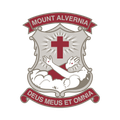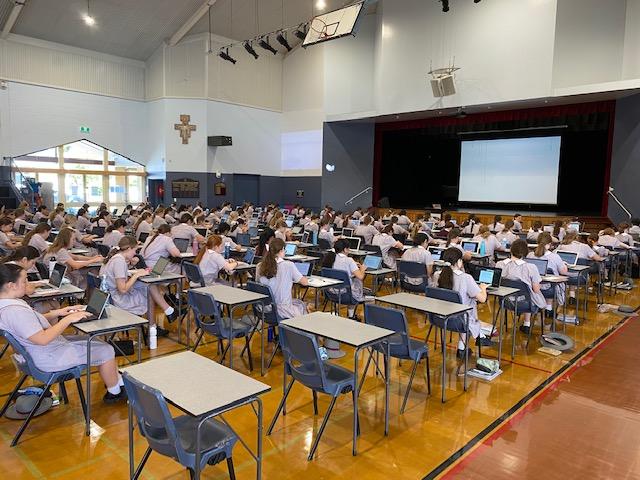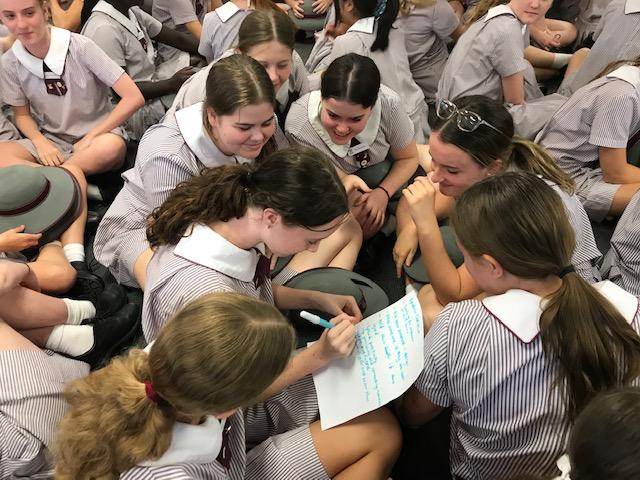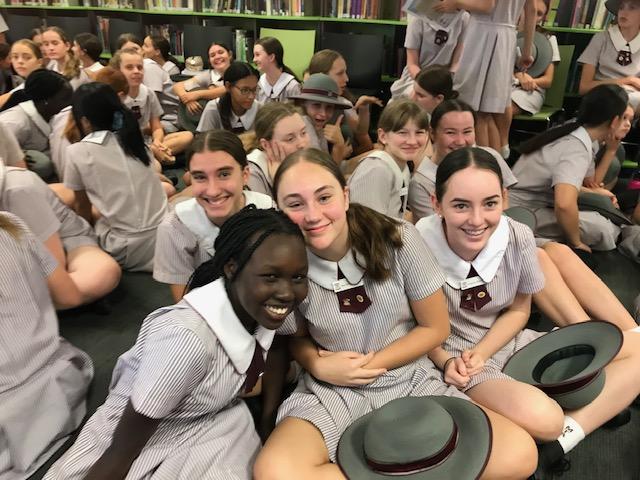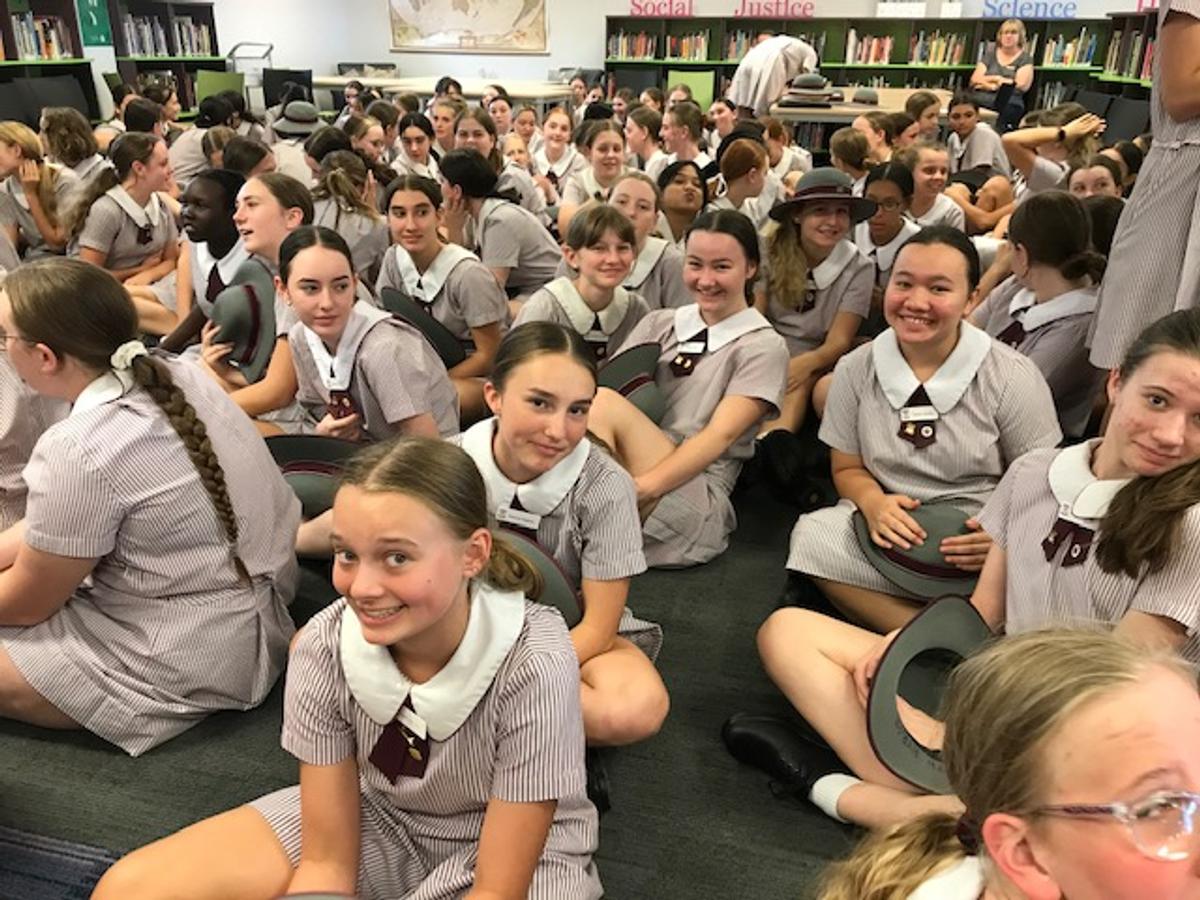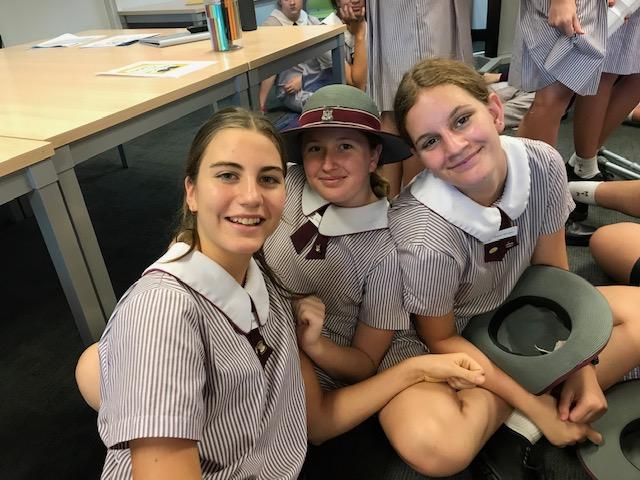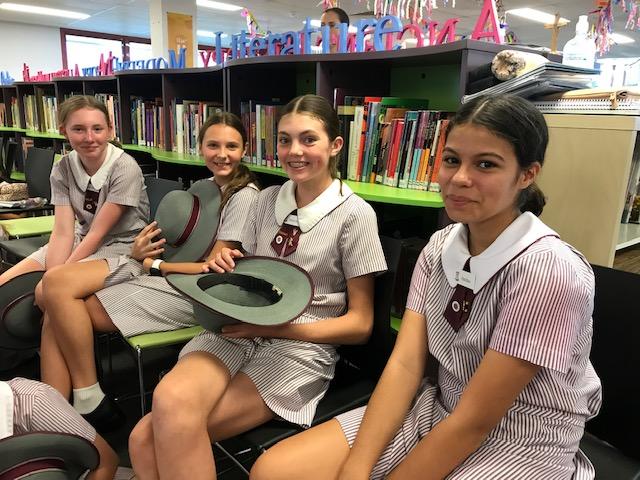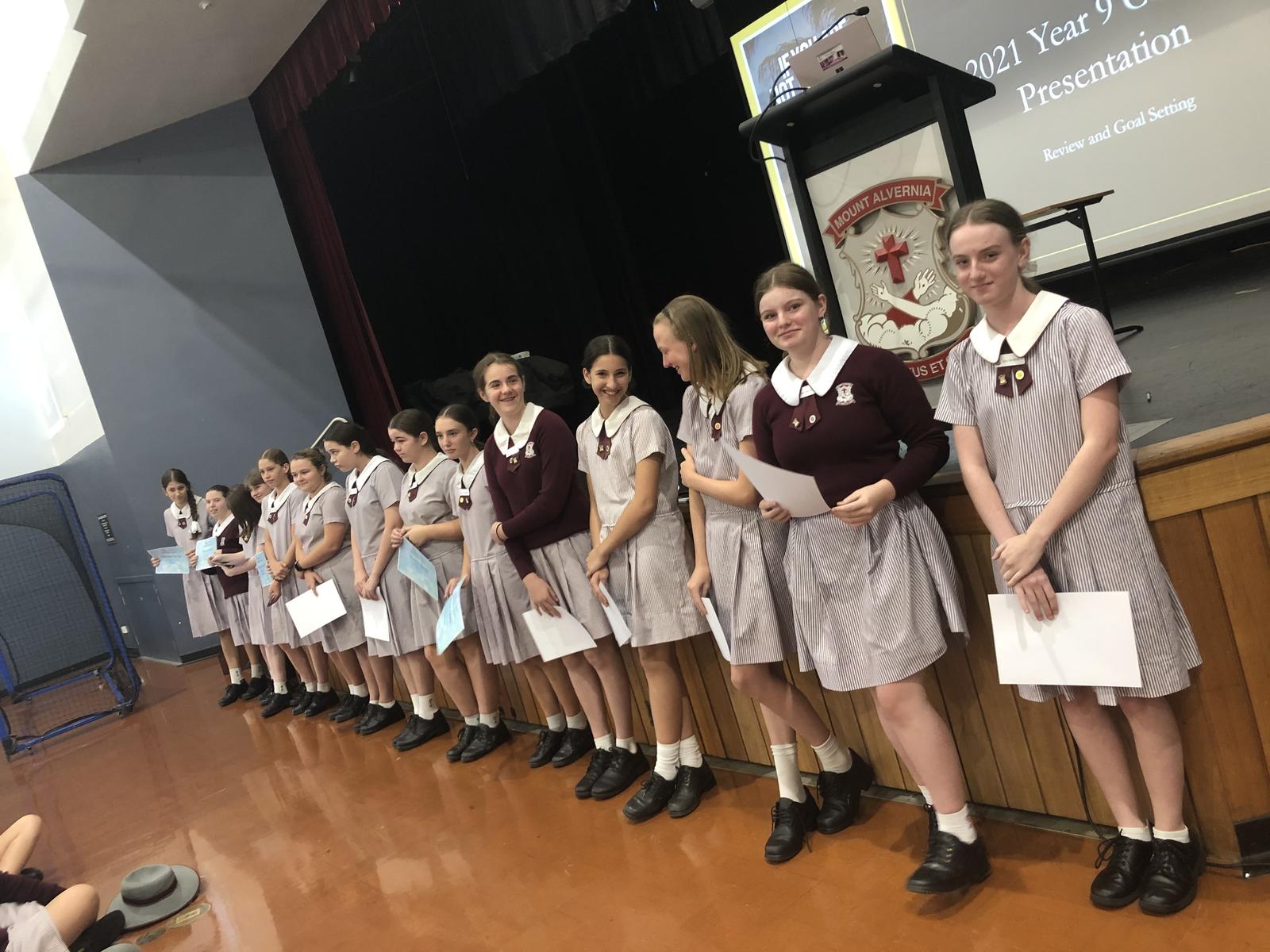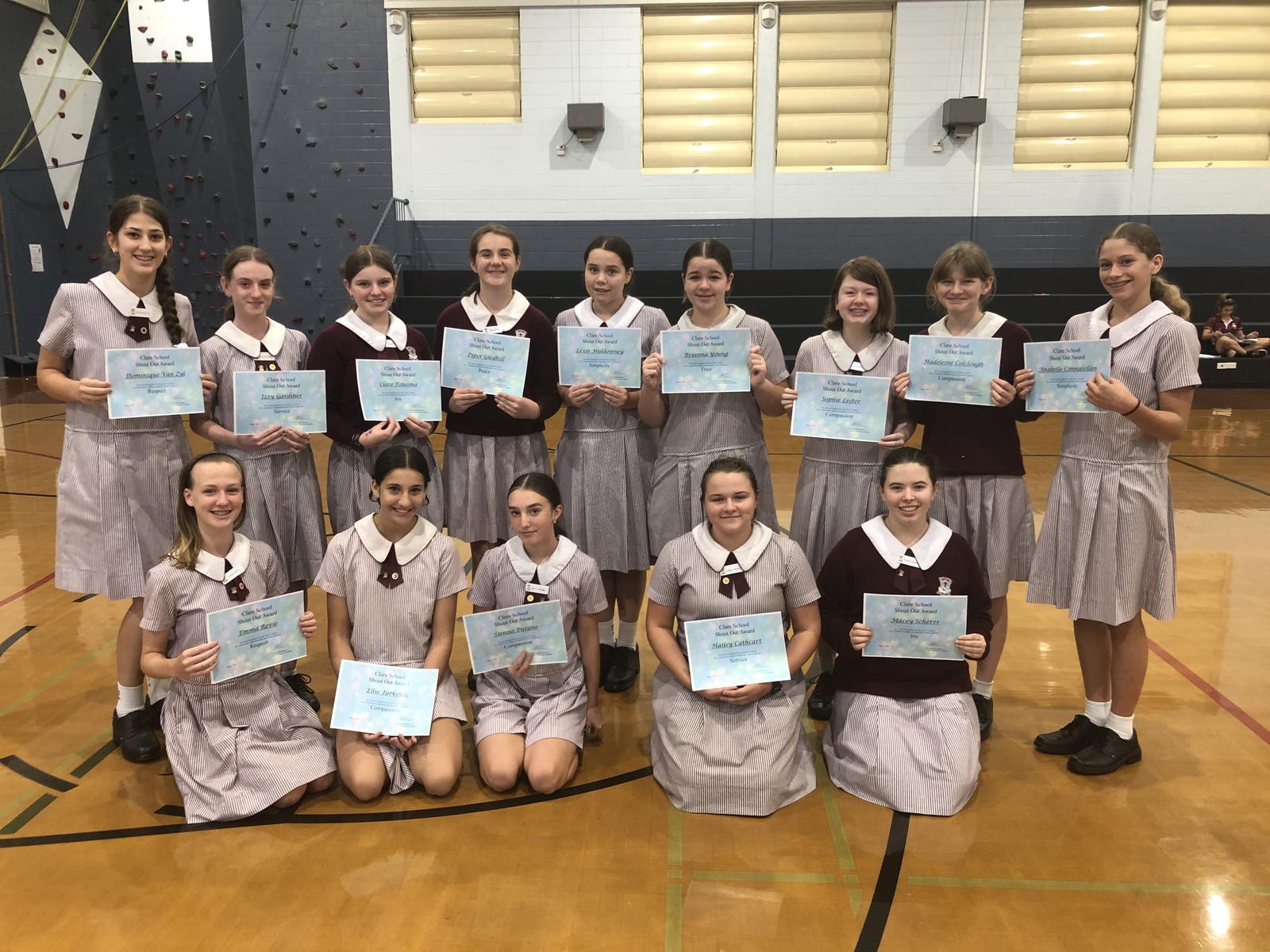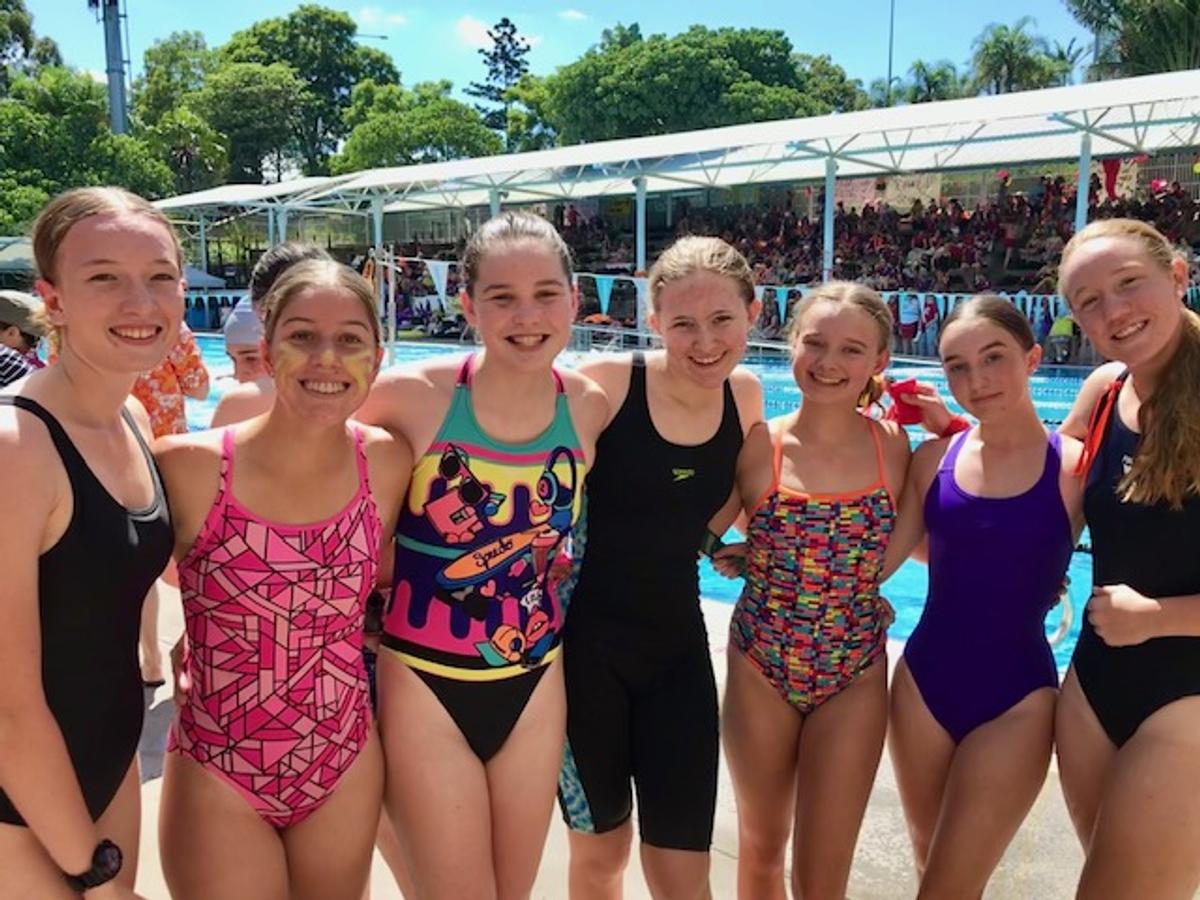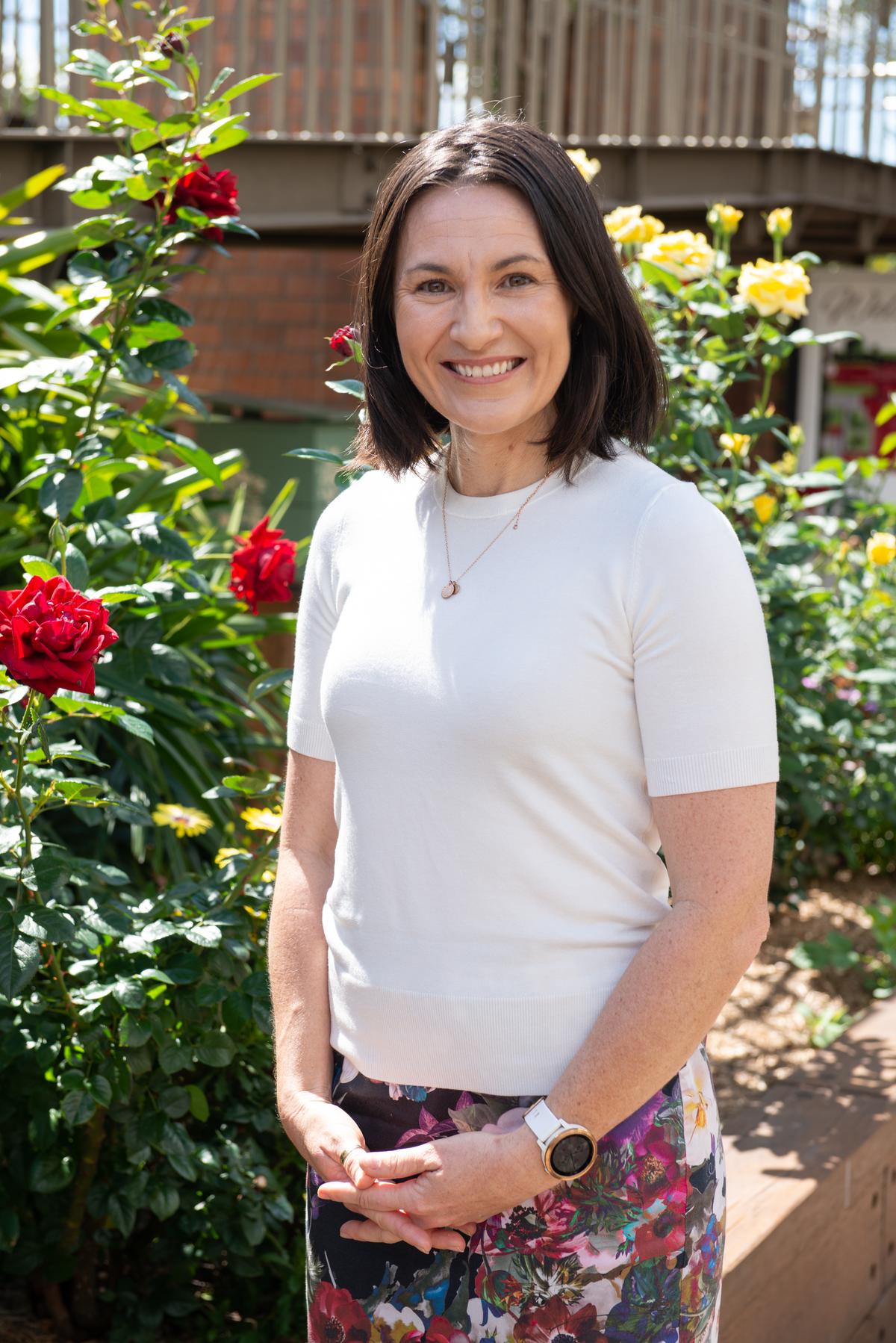Year 9 Pastoral Guardian
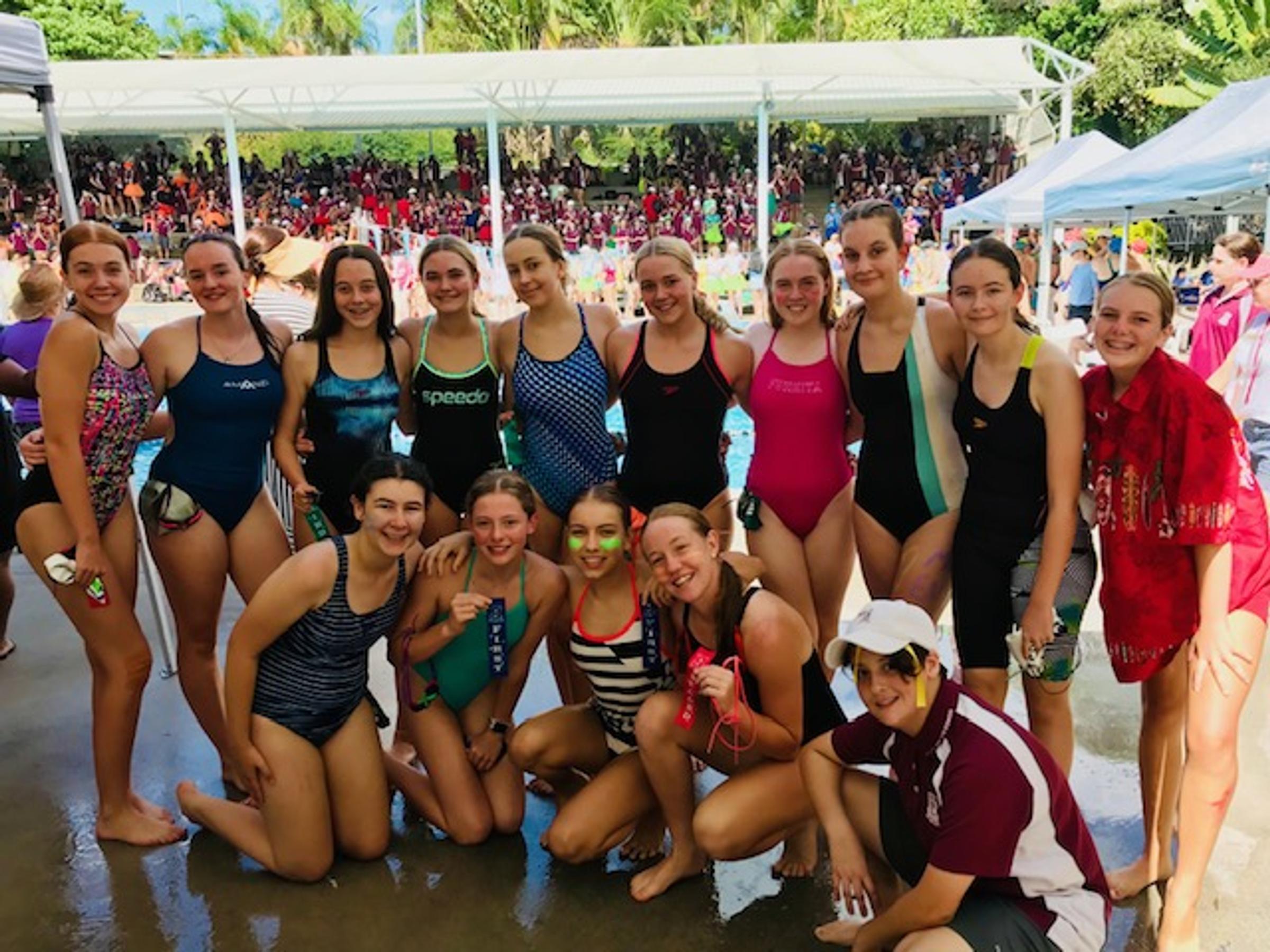
A young child stands behind her mum, clinging onto her legs as tightly as she can.
She peeks around her mum’s legs to see all the children playing happily in the playground. The mother gently takes a step to the side, placing her hand on her daughter’s back, encouraging her to take that crucial first step forward. The child hears the supportive and caring words from her mother, “Go on, sweetheart; go play”. The child grips more tightly and lets out a little whimper. The mother bends down to her daughter, gives her a cuddle, looks into her big, beautiful eyes, and says “You are strong, you are brave, you are beautiful, you can do this, I am here" - and, with those reassuring words, her daughter slowly lets go and takes a couple of steps forward.
The child turns back to see her mum who is giving her a smile of encouragement to keep going. She hesitates but, in that moment, decides to keep walking, and very quickly is playing happily in the playground with the other children.
You most likely experienced a similar situation with your daughter as she was growing up. She needed you to give that gentle nudge forward, to be brave, and to go outside her comfort zone. As an adolescent she still needs encouragement to be courageous. She still needs that gentle nudge to overcome the fear associated with change, with new things and, most importantly, with the challenge to speak up for herself.
Adolescents can find it difficult to find their voice, to speak up for what is right, to challenge others on their actions, and to be able to say no. Why is that? A lot of it has to do with the need to be accepted and connected, and not to be seen to be different. Self-trust and self-confidence are the foundations for adolescent girls to use their voices and, as an institution educating young women, we aim to implement programs/activities that build self-trust and self-confidence.
With the sudden end to a very busy term, I reflect on the opportunities your daughter has experienced that has allowed her to develop her self-trust and self-confidence:
- ·Personal Development (PD) in Year 9 has focused on developing the ‘Leader of Self’. The program is based on aspects of The Seven Habits of Highly Effective Teens. Students were asked to develop visible skills in leadership in themselves – to be proactive,responsible, organised, self-disciplined, and self-aware.
- As a cohort, the theme for the term was Be Kind. Students were encouraged to complete random acts of kindness and to devote time to be kind to themselves. Kindness to oneself and others creates acceptance and connections. Students also nominated their peers for the Shout Out Awards. Applying the Ccollege values, recipients were recognised for their contributions to the year level.
- Recently, The University of Queensland delivered a motivating session to the Year 9 students with the intention to inspire more women to be involved in the science field of engineering. Students listened to key speakers who shared their career journey in science. The Year 9s were commended for their maturity and intellectual questions.
- Year 9 Reflection Day was a fabulous day and, as mentioned in my previous Parent Corner, it was a chance for the cohort to unite and for the individual student to reflect on their personal journey so far.
- Raise the Bar Leadership Program is an ongoing college program designed for students who aspire to leadership. I regularly advise students to be involved in this program as it is a fabulous way to build personal skills in a range of areas. One of the aims of the program is to develop effective members of our community. There are many Year 9 students who have embraced the program.
- Other college cocurricular activities - such as sport, music, drama, and the musical - are fantastic avenues for students to develop their self-esteem and self-confidence along with connection to our community – something that is important to enhancing their wellbeing.
- School committees are a way to connect with like-minded people, sharing a common goal to make a difference to the lives of others. Students who participate in the various school committees are constantly developing skills of leadership, organisation, and creativity - a truly wonderful way to feel connected and to build self-esteem.
The holidays are a great opportunity to reflect on the term and to devise ways to improve college life. You may wish to connect with your daughter on this topic and give that gentle nudge forward, to be brave, and to go outside her comfort zone.
I also welcome to the College two new students - Grace Joseph and Caitlin Noble.
Light Bedtime Reading
Having two boys of my own, I steer towards books written by Maggie Dent and Steve Biddulph and, despite the fact my two are only five and three, I have gained some valuable insight to the journey that lies ahead. In my role as Pastoral Guardian, I navigate to the outstanding work of Rebecca Sparrow, Madonna King, and Linda Stade. They have a wealth of knowledge and expertise on a variety of issues experienced by teens, especially girls. I draw your attention to Rebecca Sparrow’s book, The Lighthouse Plan. This book is a tool to creating strong connections between mothers and daughters with the intention for the daughter to see their mother as their 'lighthouse' - that person to turn to for guidance and wisdom. Rebecca focuses on issues such as body image, social media, self-confidence and resilience, mental health, and friendships. In reference to Annette Butterworth’s article this week, it is vital that we connect with our teens via open lines of communication. We need to be strategic in our approach and make them feel part of the conversation, not the centre of the conversation. I highly recommend for you to invest in Rebecca’s book. I would be interested to hear from you if you have read the book and if you have applied any of her strategies.
Happy Easter to you and your family.
Take care.
Tamara Richardson
